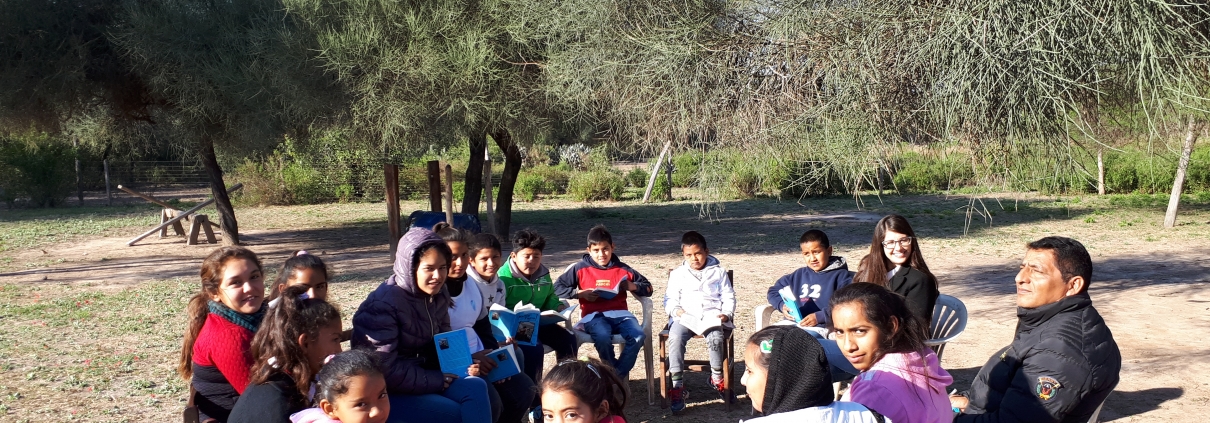A MULTI-GRADE SCHOOL AT HOME? WHAT RURALITY CAN PROVIDE US IN THESE DAYS.
The suspension of face-to-face classes has profoundly modified the teaching and learning process. The families, in addition to facing the changes in the habitual dynamics, have assumed the planning of the most diverse school activities - most of the time, of different grades, working on different contents in notebooks, blackboards, computers, tablets -. Ensuring that children at home continue to learn requires, in turn, new learning for adults. At Voy con Vos we take this opportunity to reflect on some of the practices implemented on rural contexts, which we believe can contribute to these families today, when organizing school activities.
At Voy con Vos we have been working for more than 12 years with education programs in rural schools in the inner-regions of the province of Chaco. In many occasions, the condition of rurality is synonymous of greater challenges: isolation, difficulties of access and distance, little connectivity and more limited possibilities. However, rural education also harbours particularities that are generators of opportunity, such as multi-grade. Multi-grade refers to the organization of the school in a unique way since, in the same classroom, there are children of different ages who are students of different school grades. 81% of rural primary schools are multi-grade [1] and many of them have only one staff member, which is even more challenging.[1] y, muchas de ellas, son de personal único, lo cual es aún más desafiante.
We observe a parallelism between the multi-grade and the current context, where many families with more than one child have had to organize school activities inside the house, turning them into "multi-grades" in these times of isolation. In this scenario, from Voy con Vos we want to share one of the practices that we implemented as part of our Schooling Program: literary gatherings [2]. And we believe it can be very helpful and inspiring for families.
Literary gatherings are dynamics that take place in groups, where students and teachers participate, who organize themselves to dialogue and share their emotions and opinions based on the reading of a classic text of universal literature. On the one hand, participants learn to listen to and respect the opinions of others, and on the other, they express their opinions, judgments and feelings assertively. A reading objective is established (eg. a weekly chapter) and the literary gathering is the space for exchange, where there is a moderator is appointed at the beginning, so that each participant - in turns - can share their opinion on the reading and the relationships they find with their own experiences.
In our experience implementing them, the literary gatherings have brought improvements in reading comprehension, reading ability, and critical thinking. The participation of children of different ages, gender and experiences enriches the dynamic, and enhances integration and motivates younger children to bond with reading, seeing that the older children also do so.
Rural schools are the opportunity to learn for many children and young people in our country. On this occasion, we hope that the teachings developed in the rural context will serve as a tool to rethink the way in which the tasks that schools send are carried out, and to promote joint work between brothers of different grades. The literary gatherings are just one example of this, and can take place in the 'multi-task-space-at-home' to strengthen ties and promote articulated work with the school.
By: Carla Abbate – Executive Director Voy con Vos
[1] DiNIECE (2015a) en “Transformamos la realidad desde la escuela rural”, Voy con Vos, (2017), p.5.
[2] Voy con Vos develops in alliance with Natura y CIPPEC.



